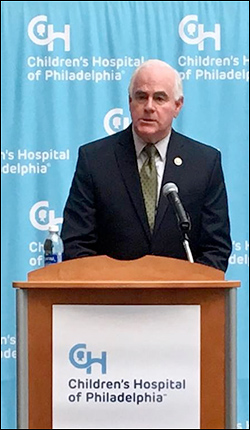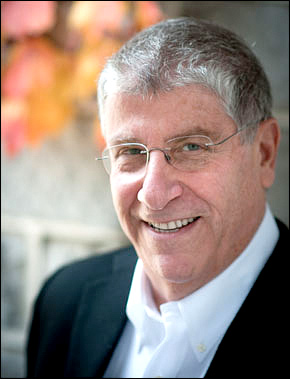The delayed Texas primary was finally held last night and featured a voter participation rate of approximately 20 percent. The vote was originally scheduled for March 6, but had to be twice postponed because of litigation over the state’s redistricting maps.
In the much-anticipated Republican Senate race, Lt. Gov. David Dewhurst, who began the race as the prohibitive favorite, did in fact place first but fell about four points below the 50 percent threshold necessary to avoid a run-off election. Therefore, he and second-place finisher, former Texas solicitor general Ted Cruz, will square off in a July 31 secondary vote. Placing far behind these two were former Dallas mayor Tom Leppert and ESPN college football analyst Craig James. Leppert and James are eliminated from further competition.
Dewhurst was spending wildly at the end of the race in hopes of attaining the majority plateau in order to make an outright claim upon the nomination. Overall, the lieutenant governor’s primary spending will likely top $20 million, of which $12 million came from the candidate himself in the way of a loan. In contrast, Cruz only spent in the neighborhood of $5 million. Forcing Dewhurst into a run-off was Cruz’s only hope at winning the nomination, since it was never feasible he could top the lieutenant governor for first place. In a one-on-one battle where turnout will be even lower than in the primary leads to a political situation where anything can happen.
On the Democratic side, former state Rep. Paul Sadler and psychologist Grady Yarbrough will head for a second election. The winner becomes the sacrificial lamb to either Dewhurst or Cruz in the general election.
In the district congressional races, it appears, when all of the votes are finally counted and released, that eight-term veteran Rep. Silvestre Reyes (D-TX-16) may have lost the Democratic nomination to former El Paso city councilman Beto O’Rourke. The challenger was hovering around the 51 percent mark, which will be enough to win the nomination outright. Late votes could force a run-off if both fall just below the majority mark. O’Rourke was supported by the Campaign for Primary Accountability, which concentrates on defeating long-term incumbents in both parties. This would be a major upset; Reyes will be the third non-paired incumbent to already lose in his or her own party primary.
In other congressional races, Rep. Ralph Hall (R-TX-4), at 89 the oldest member of the House, stared down two GOP opponents to secure renomination. Hall garnered 59 percent against a pair of opponents. In the Dallas area, Rep. Joe Barton (R-TX-6) easily avoided a run-off by scoring 64 percent of the vote against two opponents. Reps. Kenny Marchant (R-TX-24) and Eddie Bernice Johnson (D-TX-30) also easily avoided run-offs against opponents who originally appeared to have the wherewithal to organize credible campaigns.
All other incumbents easily won their nomination battles including freshman Rep. Blake Farenthold (R-TX-27) who was a surprise winner in 2010. Because redistricting added 46 percent new voters, most of whom are Republican oriented, Farenthold has a strong chance of keeping this seat the rest of the decade now that he is the bona-fide incumbent in this newly constructed seat. He scored an impressive 80 percent of the vote last night. Rep. Lloyd Doggett (D-TX-25), who redistricting placed in the new heavy Hispanic 35th District between Austin and San Antonio defeated two opponents with 71 percent of the vote. He will now go onto an easy re-election campaign in the fall.
In the open seat races, state Rep. Joaquin Castro, who was unopposed for the Democratic nomination in the San Antonio-based 20th District that retiring Rep. Charlie Gonzalez (D) is vacating, took one major step toward winning in the fall as he now becomes the official party standard bearer. He will easily win election in November.
In the new 14th CD, the seat presidential candidate Ron Paul is vacating, Republicans will feature a run-off election between state Rep. Randy Weber and Pearland City Councilwoman Felicia Harris. The winner faces former Rep. Nick Lampson (D) in what will be an interesting general election. The eventual Republican nominee should win here, but Lampson has proven strength in the Beaumont-Galveston area.
Turning to the four new seats that population growth awarded the state, former Secretary of State Roger Williams placed first in a field of 12 GOP candidates and will now face retired Army officer and Tea Party activist Wes Riddle. The winner of the 25th District Republican run-off, probably Williams, will claim the seat in November.
In the new Dallas-Ft. Worth-based 33rd District, as expected, former Dallas city councilman and state representative Domingo Garcia and ex-congressional aide (to then-Rep. Martin Frost, D-TX-24) Marc Veasey will also head to a secondary election, with the latter placing first by more than 10 points.
In the Brownsville area in South Texas, attorney Filemon Vela, the son of former US District Judge Filemon Vela, Sr. and Brownsville Mayor Blanca Sanchez Vela, placed first in the 34th District primary. He will face former Edinburg city manager Ramiro Garza. The run-off winner, very likely Vela, takes the seat in November.
In the new Republican 36th District, a three-way battle is still being finalized among financial advisor Stephen Takach, former US representative Steve Stockman, and state Sen. Mike Jackson. Takach seems poised to finish first. Because of the outstanding vote in Harris County, the only place Jackson showed real strength, he will probably edge the former congressman for second. The run-off winner claims the seat in November.
Turning to the state’s one strong general election challenger race, in the San Antonio-based 23rd District, former Rep. Ciro Rodriguez (D-TX-23) who has won and lost two different House seats, is very close to capturing the outright majority that would clinch yet another party nomination for him. State Rep. Pete Gallego is second hovering in the mid-30s percentile, and he will either lose or barely qualify for a run-off when all ballots are finally counted. The new Democratic nominee will now face freshman Rep. Quico Canseco (R) in the general election. The 23rd is a tight district, so expect a highly competitive race in the fall.


